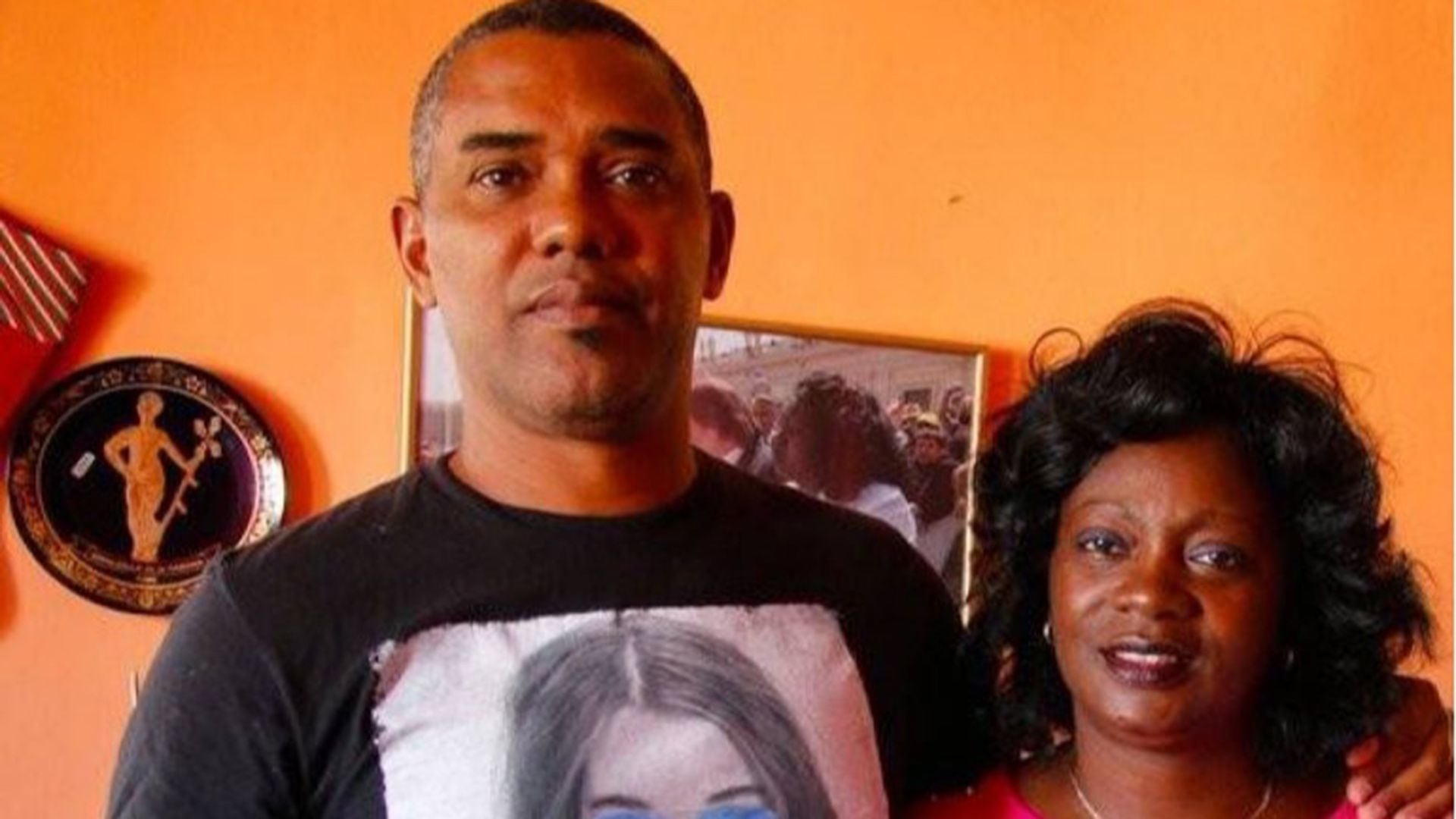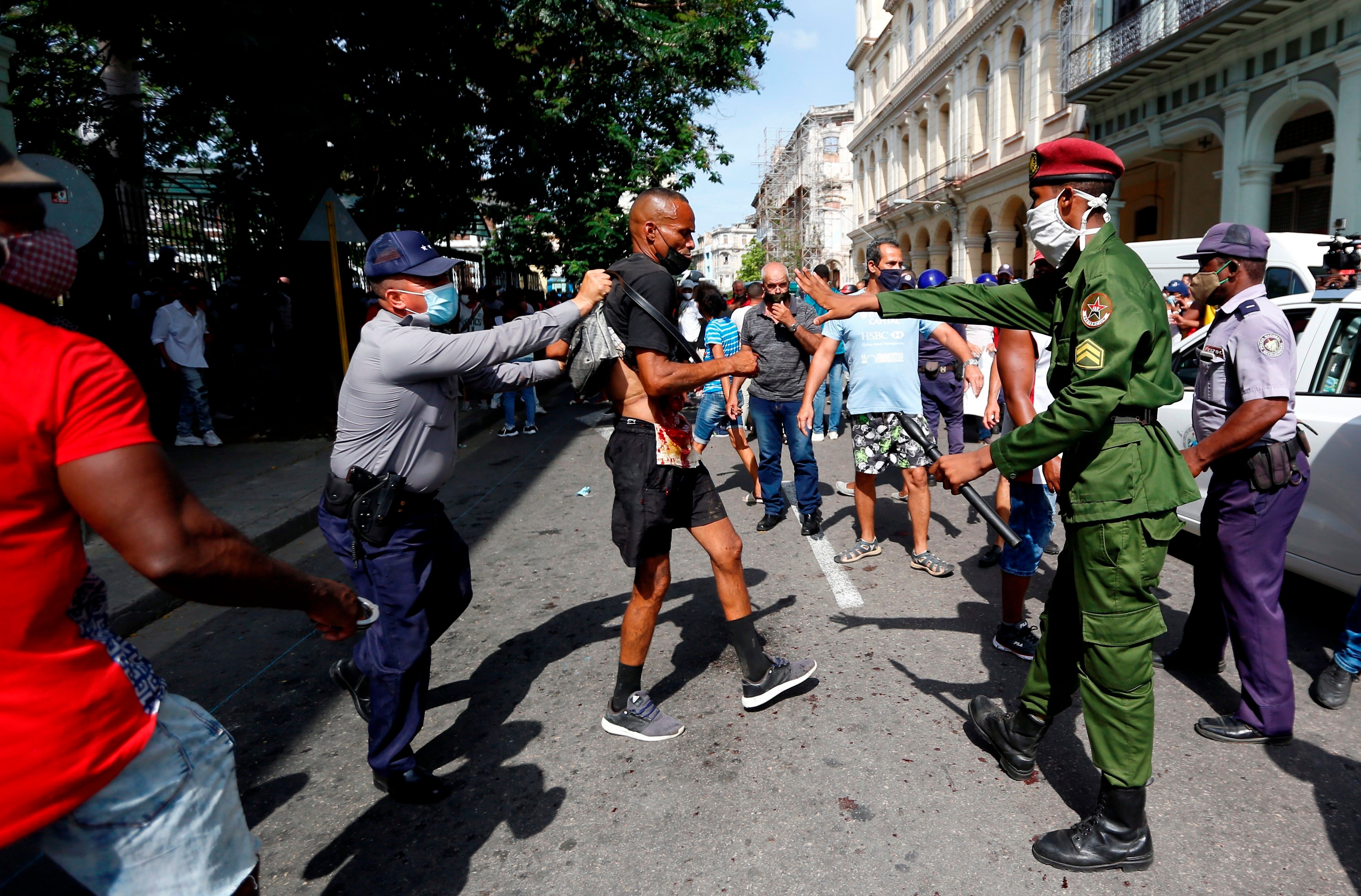:quality(85)/cloudfront-us-east-1.images.arcpublishing.com/infobae/ZFHCQRE22VB4DLCGPDPAM6R56U.jpg 420w)
Cuban dissidents Berta Soler, leader of the opposition movement Ladies in White, and her husband, fellow dissident Angel Moya, were released early Monday after being arrested for the twelfth consecutive Sunday in Havana by agents of the Castro dictatorship.
Moya reported on his Facebook account that he and Soler were arrested at 10.45 on Sunday morning “by combined repressive forces of the State Security and the National Police as they left the national headquarters of Las Damas de Blanco”, located in the Havana neighborhood of Lawton.
Moya explained that both were taken to police units in the Guanabacoa and Cotorro municipalities, where they each imposed a fine of 150 Cuban pesos (equivalent to 6.25 dollars at the official exchange rate) and released shortly after two o'clock in the morning on Monday.
The members of the Ladies in White have been arrested every weekend since they announced in January that, as before the pandemic, they would again take to the streets, this time by those arrested at the protests of July 11 last year.
The Ladies in White movement was formed by a group of women relatives of 75 dissidents and independent journalists arrested and sentenced in March 2003 to high prison terms following a wave of repression by the Cuban regime, known as the “Black Spring”.

The wives, mothers and other relatives of those prisoners began a series of Sunday marches calling for their release and became a symbol of dissent. In 2005, The Ladies in White received the Sakharov Prize for Freedom of Conscience from the European Parliament.
The European Union (EU) and non-governmental organizations such as Human Rights Watch (HRW) and Amnesty International (AI) criticized that wave of arrests, calling them political.
The Cuban authorities, for their part, claimed that they were counterrevolutionaries who were trying to violate national sovereignty on the orders of the United States.
Last week the Prisoners Defenders (PD) organization reported that there are currently 1,027 political prisoners in Cuba, most of them (894) as a result of the opposition demonstrations in July last year.
This organization, which publishes the list of political prisoners on the Caribbean island every month, reports that 38 of these detainees and convicts are minors, the youngest of 13 years old, and 42% of them have been accused of sedition.
Compared to the previous year, they note that April last year began with 140 political prisoners, a figure that increased significantly after the protests of July 11, in which thousands of people took to the streets to protest against the dictatorship of Miguel Díaz-Canel to the cry of “freedom”.

Prisoners Defenders (PD) maintains that more than 5,000 people were arrested in those 2021 protests and more than 1,500 were criminally prosecuted.
In total, the organization denounces 1,204 political prisoners from April 1, 2021 to March 31, 2022.
Prisoners Defenders, which constantly denounces the political situation in Cuba, accused the Cuban regime at the United Nations last week of “torture” of “political prisoners” on the island, in a report submitted to the UN Committee Against Torture and Special Rapporteur on torture.
(With information from EFE)
Keep reading:
